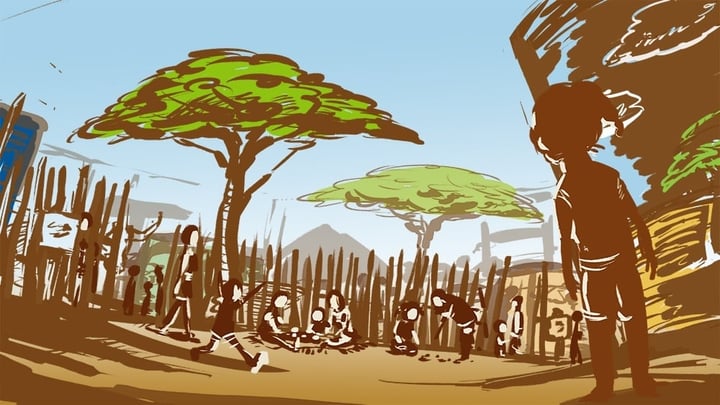
Did you know that long ago, in the area south of the Sahara desert, mathematical thinking was mixed into the arts, riddles, games, architecture and other areas of life?
Check out these 13 interesting facts and learn something new about the history of mathematics in anicent Africa!
1. The oldest mathematical games in the world originated in African regions located south of the Sahara.
Check out our storybook board games based on math games from ancient Africa.
2. The oldest mathematical artifact, the Lebombo bone, dates back to more than 35,000 years ago. It was found in the Lebombo Mountains near Swaziland.
3. Digital computer systems originated from ancient African cultural practices.
4. Many African cattle and sheep hearders recognize their herd through facial and pattern recognition.
5. The development of geometrical thinking started in early African history as hunter-gatherers of the Kalahari Desert in southern Africa learned to track animals by getting to know the shape of their poop to learn which animal passed by, how long ago, if it was hungry or not, etc.

6. Cowrie shells were a popular form of currency across Africa.
7. Geometry and symmetry in repeated patterns can be seen throughout the area south of the Sahara, in forms of artistic designs on houses, gourd, baskets, pipes, and other everyday items.
8. Throughout the area south of the Sahara, all adult members of a community had the mathematical understanding, design sense, and construction skills to build his/her own house.
9. The Bushmen can recognize up to 175 species of plants as a food source. They are able to walk for miles and find the exact location of a watery root plant that was spotted several months ago.
10. People used an ancient structure known as the African Stonehenge in present-day Kenya as a calendar by following the shadow of the setting sun. Stones were placed to track the movement of the sun, which casts shadows on the rock.
11. The Yoruba people from present-day Nigeria created their own complex counting system based on units of 20 (instead of 10).
12. By analyzing the variation of symmetry in geometric patterns shown on a piece of cloth and other cultural items, it is possible to identify which group of people made it.
13. Certain taboos affect the numerical expression of numbers. For example, the number "7" is tied to the origins of creation and great divinities within the Niger Delta region. Accordingly, to express the number "7", you would say "6+1".
Thank you for sharing our interest in math and games in ancient Africa!

Calli Wright was the Marketing Manager at MIND Research Institute. She loves playing and designing board games, which she often talks about on twitter @CalliWrights.
Comment